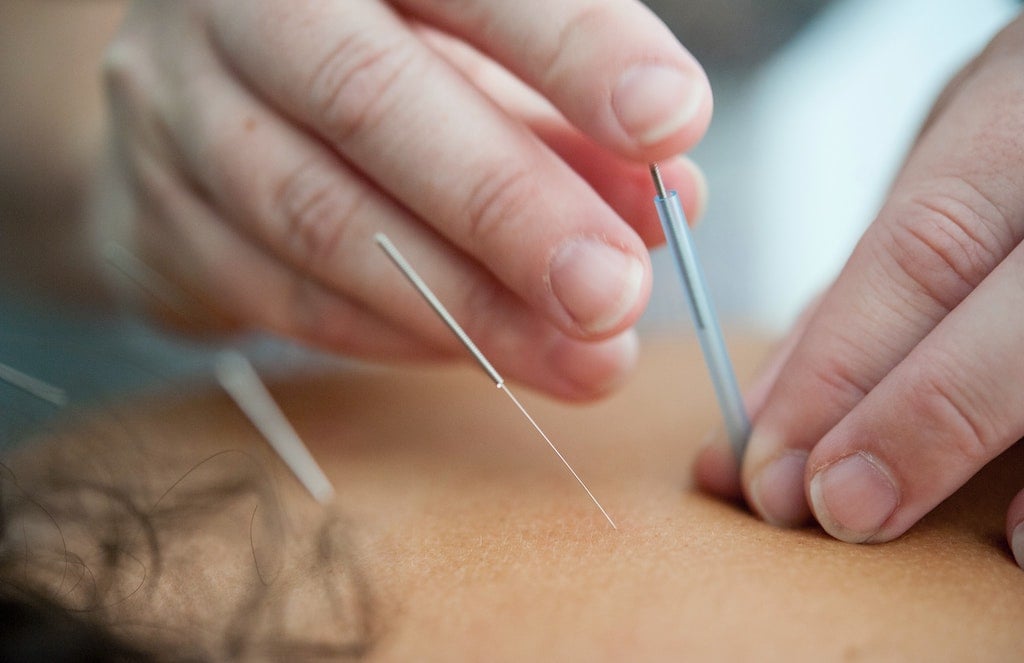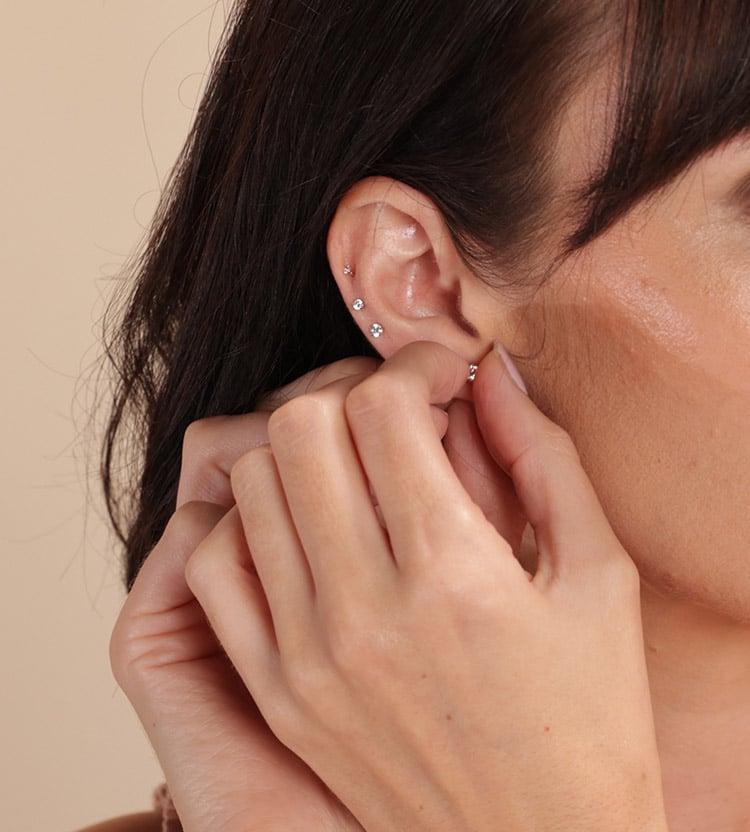
These days, holistic medicine is gaining traction among certain groups. Although there’s nothing wrong with trying more “natural” remedies before turning to modern medicine, it’s important that you fully do your research before relying on these alternative forms of medicine. After all, there’s tons of pseudoscientific misinformation out there intended to market certain products and practices to consumers when, in reality, they have no health benefits whatsoever.
Recently, piercings have been added to the list of supposed chronic pain cures.
It’s said that piercings, like the daith piercing, can offer migraine relief or relief from other chronic pain. However, there is absolutely no hard scientific backing to support this, and any positive results from piercings are almost unanimously accepted throughout the scientific community as pure anecdotal evidence.
But, why do people claim that piercings have offered pain relief, and what is the truth behind it? Here’s a quick guide to piercings for pain relief and whether or not they work.
The theory behind why piercings may offer pain relief is quite simple.
Acupuncture—a form of treatment where needles are used to activate certain areas of the body for stress relief, muscle relaxation, and pain management—is a practice that’s been in use for centuries, but one that has only relatively recently become common in Western societies. Regarded as pseudoscience by some, acupuncture has also provided relief to those who swear by it. Traditional Chinese medicine believes that acupuncture serves to aid the flow of energy within the body, and modern acupuncturists claim that the practice stimulates certain nerves to provide relief.

It’s believed by some that, by piercing certain acupuncture points, you will permanently activate that point. For example, the daith is located at an acupuncture point used to offer migraine relief. Some who suffer from migraines, therefore, might get their daith pierced in order to activate that acupuncture point for good.
There are many areas like this on the body, and some people have gotten pierced to address a number of issues, from weight gain to anxiety.
The effectiveness of piercings for pain management and anxiety relief depends upon who you ask.
The scientific community largely agrees that any positive outcome from a piercing is merely due to a placebo effect; you believe that it will work, and it does.
However, you can find anecdotal evidence that getting pierced can help certain ailments. This case study outlines one such successful case. Often, these positive effects are only temporary, and any relief achieved eventually goes away.

Long story short, you shouldn’t expect your piercing to be the cure-all that’s promised. If you do feel a positive outcome from your piercing, it’s likely a simple placebo effect, and it probably won’t last forever. That being said, if you’re already interested in the aesthetic appeal of a certain piercing, and you’re curious about the acupuncture benefits of that piercing, it doesn’t hurt to try. Just don’t go into the piercing expecting anything; any positive results should only be considered a bonus.
Keeping in mind that piercings likely do not offer any true medicinal benefit, if you’re curious, here are the piercings that have been believed to provide relief.
Located in the thick area of cartilage above the ear canal, the daith piercing is said to help with the following.
Located in the inner flat portions of the ear, the conch piercing is placed in acupuncture points that address pain associated with muscle tension.
The lobe piercing is said to be associated with improving eyesight and reducing depression.
Placed in the triangular flap of cartilage in front of the ear canal, the tragus piercing is believed to control the appetite.
Keep in mind that no medicinal benefit should be expected from any of these piercings. If they do help, it should be considered a plus.
At the end of the day, piercings almost definitely offer no valid treatments. If you’re looking to get your daith pierced, do so with the intention of a great look rather than any sort of ulterior benefit. Remember, cartilage piercings take a significant time to heal, so you should be prepared for months of vigilant aftercare as they heal. If you want your daith pierced solely for pain relief, it’s likely too much of an effort with no gain.
Still keen on the daith piercing? It’s one of our faves, too. Here’s some daith piercing jewelry to get you excited.
Leave A Comment